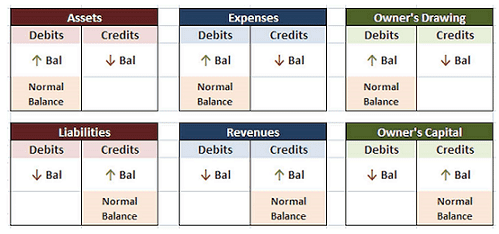
Specific requirements differ based on the country or governing body but generally involve a university accounting degree, professional exams, and practical experience. CAs typically lean towards auditing and tax matters, with expertise in financial reporting and business strategy. Certified Public Accountants (CPAs) are state-licensed accounting professionals with a broad scope of financial competence. Their scope of expertise includes financial accounting and reporting, auditing financial statements, attestation and valuation services, strategic planning, and investment and financial planning advice. Enrolled Agents (EAs) are federally authorized tax specialists with the power to represent taxpayers before the Internal Revenue Service (IRS) for various tax matters. This means they can handle tasks such as filing individual and business tax returns.
What is an Enrolled Agent for Taxes?

CPAs are granted unlimited representation rights to assist clients in tax-related matters as well as with audits, risk assessment, business valuation and financial planning. However, CPAs are only allowed to practice in the state where their current license is held except for states that accept CPA mobility for limited practice. They’re specifically licensed to prepare tax returns, provide taxpayers, and represent taxpayers in collections, audits, and appeals. After a candidate has passed the qualifying exam, and a final suitability and background check, the federal government then recognizes them as EA tax professionals. An EA is the highest credential awarded by the IRS for tax professionals.
Information about enrolled agents

You expect your preparer to be skilled in tax preparation and to accurately file your income tax return. They know about your marriage, your income, your children and your social security numbers – the details of your financial life. Enrolled agents, like attorneys and certified public accountants https://www.bookstime.com/ (CPAs), have unlimited practice rights. This means they are unrestricted as to which taxpayers they can represent, what types of tax matters they can handle, and which IRS offices they can represent clients before. Learn more about enrolled agents in Treasury Department Circular 230PDF.
Read why our customers love Intuit TurboTax

A CPA can provide auditing, financial planning, and many other services in addition to helping with tax issues. CPAs have a broader knowledge base in all facets of accounting while EAs only focus on tax. Not only is this reflected in their background, even their credentials limit their scope.
How many times within a testing window can you take each part? (reviewed Oct. 19,
In answering questions, candidates should not take into account any legislation or court decisions in effect after Dec. 31, 2023. A Form 1040 return with limited credits is one that’s filed using IRS Form 1040 only (with the exception of the specific covered situations described below). Whether you want an expert to do your taxes from start to finish, or expert help while you file on your own, TurboTax has expert-backed offerings to meet your needs. With TurboTax Live Assisted, our tax experts help you complete your taxes, fix any mistakes, and explain what’s next. Or, with TurboTax Live Full Service, a local tax expert matched to your unique situation will get your taxes done 100% right – as soon as today. Whichever plan you choose, you’ll get you taxes done with 100% accuracy and your maximum refund, guaranteed.
- The primary difference between an EA vs CPA is that EAs specialize in taxation, and CPAs can specialize in taxation and more.
- Not only is this reflected in their background, even their credentials limit their scope.
- We compare how they differ and where they overlap so that you can feel confident and informed when planning your career.
- Becoming a CPA is challenging, but earning your license can offer career-long benefits, including more engaging work and a higher earning potential.
- They may work as auditors, financial planners, corporate and executive accountants, and/or tax consultants.
- As part of the evaluation of your enrollment application, the IRS will conduct a suitability check that will include a review of your personal tax compliance and criminal background.
What are the Key Differences

EAs could help you work through an IRS audit or a collection problem, and they can also perform bookkeeping services that could be useful for businesses when preparing tax returns. CPAs, however, are more adept at meeting your financial planning and accounting needs; and when it comes to tax planning, they can also help you identify tax credits and deductions to lower your tax liability. When deciding between EAs and CPAs, it’s important to consider the primary differences in their services to clients. EAs primarily focus on tax matters, while CPAs offer a wider range of financial services. They are licensed on a federal level to represent clients before the IRS for tax issues, while CPAs are state-licensed.
You’ll receive your exam results immediately, and once you’ve passed, you can apply for enrollment. The IRS explains that processing your application may take as long as 60 days ( days if you’re a former IRS employee). Also, as part of their evaluation of your enrollment application, the IRS will conduct tax preparer vs cpa a suitability test that includes a review of your personal tax compliance. You may be able to find what you’re looking for with either type of professional as both types of professionals are equally qualified to perform similar tasks. However, there can be differences in the range of services offered.
- An Enrolled Agent is authorized by the U.S. federal government to represent taxpayers before the IRS.
- To prove it, let’s start by looking at how enrolled agents add value and then consider the assistance CPAs can provide.
- There are no guarantees that working with an adviser will yield positive returns.
- But they’re not the only ones who can help people make sense of tax issues and concerns.
- However, both serve as excellent liaisons to the CPA or enrolled agent that you choose.
But they’re not the only ones who can help people make sense of tax issues and concerns. If you’re considering a career focused on assisting clients with tax-related issues, you may be weighing your options between enrolled agent vs CPA. EAs work on tax matters only, so they can specialize in certain areas such as tax preparation or tax resolution.
- Be sure that if you choose to consult with either type of professional you have a solid handle on your finances and measure your expectations.
- Many taxpayers assume that these companies employ the same CPAs and enrolled agents that they would have access to on their own.
- While many accountants will take the steps to earn their CPA designation, it’s important to note that not every accountant is a CPA.
- The flexibility of this license means that CPAs can perform multiple important roles when they’re employed by a business, from accounting, auditing, financial planning, and tax consultation.
- Liz Weston, Certified Financial Planner, is a personal finance columnist for the Los Angeles Times and NerdWallet.
- When you have a complex tax situation that requires expertise beyond taxation, choosing an EA may result in missed opportunities or inaccurate financial reporting.